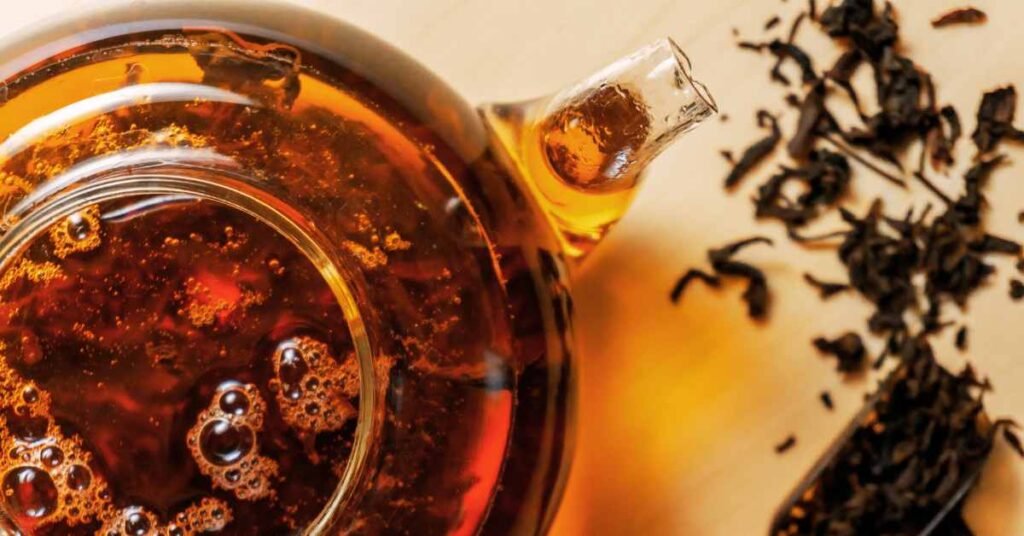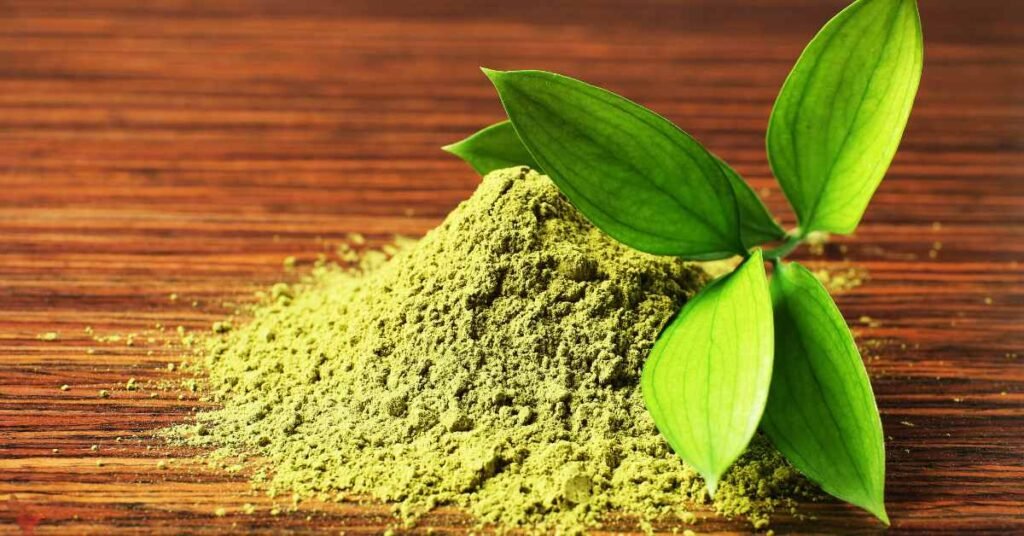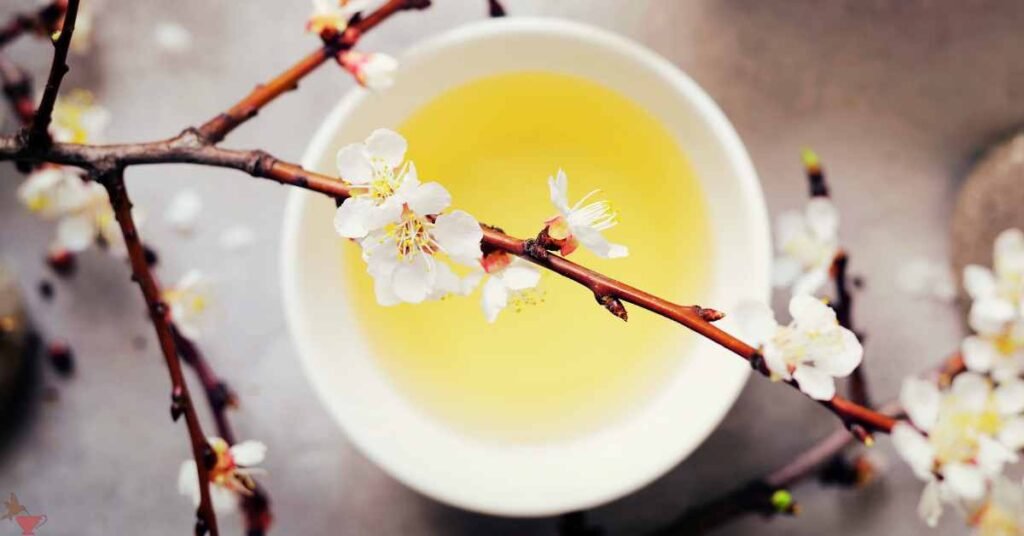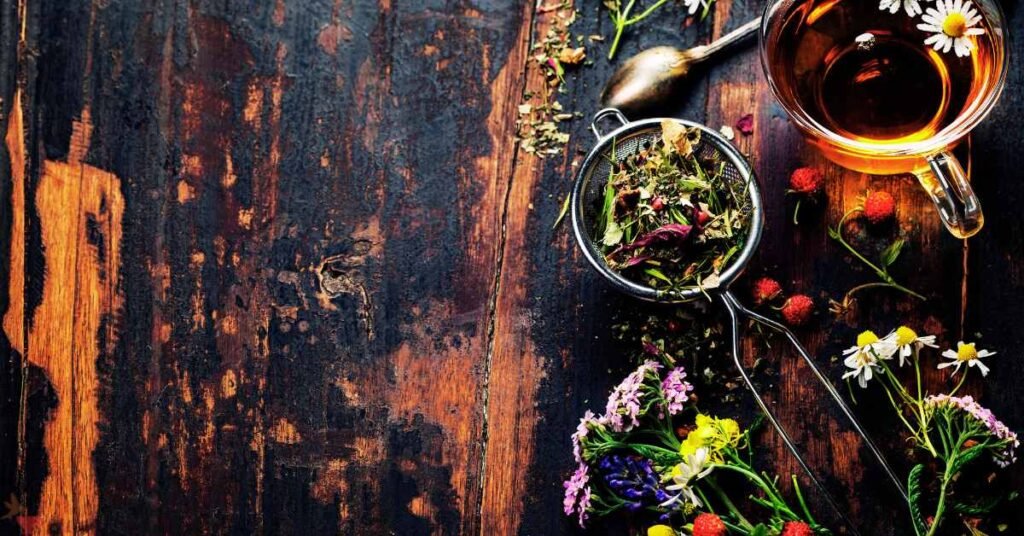Cozy on up to get a better, close up look at what’s in your teacup. We reveal some pertinent info about your tea that you don’t want to miss!
Is Tea Good Or Bad For Health?

There’s a barrage of information coming from all angles about whether or not tea is considered a healthy drink. Before we “tip the teacup” and take a look at evidenced-based information on tea, let’s quickly review tea, tisanes, etc.
Tea is often a term one uses loosely when referring to a glass of iced tea, a cup of hot tea, a beverage made from herbs, and drinks made with tapioca pearls. In the traditional medicine community, tea may refer to a tincture or infused liquid. So, how do you know what true tea is?
True Teas
True teas are made from parts of the tea plant (Camellia sinensis.) The tea plant is naturally caffeinated. The same plant can produce various types of true tea (black, green, oolong, yellow, puerh, and white.)
This is accomplished by tea producers who grow the same plant in different areas of the world. Terroir (conditions,) climate, elevation, harvest time, and processing methods are all integral steps to making a particular true tea.
Examples Of True Teas
- Black: Assam, Ceylon, Darjeeling, Nilgiri, Kenyan, Yunnan, Keemun, Earl Grey
- Green: Matcha, Sencha, Gyokuro, Hojicha, Genmaicha, Pinhead Gunpowder
- Oolong: Tieguanyin (Ti Kuan Yin,) Dong Ding, Orchid Oolong
- White: White Peach, White Peony, Silver Needle
Organic Queen Assam Black Tea
Oolong Tea
Tisanes (Herbal Tea)
Herbal tea is known as “tisane” in the tea industry. Tisanes are made from parts of herbaceous plants, spices, or fruits. Often all three of these ingredients are combined, and a true tea is blended in (such as black) to create a unique tea such as Masala Chai. Without the black tea, this drink would be a straight-up tisane.
Tisanes are a go-to treatment in traditional medicine to treat various ailments or conditions. Milk tea (bubble, Boba) is considered a tisane, although a true tea (such as black) may be added.
Examples Of Tisanes
- Ginseng
- Turmeric-Ginger
- Hibiscus
- Rooibos
- Lemon Verbena
- Chocolate
- Peppermint
Wildberry Hibiscus (Tisane)
What Are The Advantages Of Drinking Tea?

Whether you enjoy a cup of true tea (black, green, yellow, oolong, puerh, or white) or a tisane, most often, a tea delivers health benefits in different ways. The most common benefit among almost all teas is their antioxidant bioactivity. One tea may be more prone to boost the immune system, whereas another may help with weight loss and better metabolism.
Disadvantages: Why Tea May Be Bad For You
Drinking tea every day may be highly beneficial, but overconsumption of tea comes with its potential risks. Every tea drinker has unique needs to consider when selecting the right tea to enjoy.
- Do you have existing medical conditions?
- Are you taking medications?
- Are you undergoing radiation or chemotherapy?
- Are you sensitive to caffeine?
- Are you currently pregnant or nursing?
If you answered yes to any of the above questions, before consuming tea, it’s best to talk to your doctor to find out if drinking tea is safe or not. Teas may exacerbate medical conditions, interact with medications, chemotherapy/radiation, or cause side effects or adverse reactions.
We are not recommending or providing advice on any specific tea or teas in general. We provide the information about tea for you to either talk to your doctor about or decide for yourself if consuming tea is safe or not.
When selecting a tea to enjoy, it helps to consider the potential side effects of drinking tea (including overconsumption.)
- Consuming more than the recommended daily intake of caffeine (400 mg) can lead to rapid heartbeat, anxiety, insomnia, and jitters.
- Tea can aggravate or worsen GERD (gastrointestinal esophageal reflux disorder.)
- Drinking tea can cause poor absorption of iron due to overconsumption of tannins which are present in some true teas.
- Caffeine stimulates gastric acid production, which can cause heartburn.
A Quick Tea Synopsis

To give you an idea of how true teas differ, here are three of the most common true teas. White tea undergoes very little to no processing. Likewise, it is not fermented either.
As you move down the spectrum towards green and then black tea, the health benefits (advantages) begin to lessen. This is because of processing and fermentation.
This decrease in advantages does not indicate black tea is not as worthy as white tea. Every true tea has merit in taste, benefits, and aroma.
White Tea – Purist Tea
- Unfermented
- Highest in benefits
- Minimal to no processing
- Sweet, floral, fruity
Organic Silver Needle White Tea
Green Tea – Health Tea
- Some fermentation
- Higher in benefits
- Undergoes little processing
- Earthy, herbaceous, vegetal, sweet, fruity, floral
Dragonwell Green Tea
Black Tea
- Fermented
- Lowest in benefits
- Undergoes the most processing
- Robust, bold, nutty, malty, astringent
Irish Breakfast Black Tea
Black Tea: The Advantages And Disadvantages Of Drinking Black Tea
Of all true teas (black, green, yellow, oolong, puerh, white,) black tea is the most robust. Many tea drinkers perceive black tea as a highly potent tea because of its dark color. As far as caffeine levels, black tea is notoriously higher than other true teas.
Advantages Of Black Tea
Black tea’s main advantage is its robust taste. Those who prefer a stronger tasting tea thoroughly enjoy what black tea offers. It is used as a base blend for other teas such as Earl Grey, English Breakfast, and Irish Breakfast.
As for caffeine, if you are looking for a boost to get you going, black tea does the job. If you like milk in your tea, black tea marries perfectly with dairy.

Earl Grey Black Tea
Benefits Of Black Tea
Black tea delivers health benefits that most of us may not even be aware of. Evidence-based data specifically mentions what those benefits are.
The Journal of Evolution of Medical and Dental Services mentions how black tea stops dental caries in its tracks. Black tea is highly beneficial for the overall health of our teeth.
“Tea and Health” (a published research study) highlights tea’s ability to act as a preventative in developing cardiovascular disease. Black tea also helps to reduce the risk of cancer and rheumatoid arthritis. It also acts as an anti-diabetic and anti-aging.
The Nutrients Journal published a study reporting black tea as a potential benefit to help fight depression. The results of the study purported that tea’s constituents act collectively to combat the side effects of depression. Furthermore, black tea fights chronic inflammation.
Disadvantages of Black Tea
Black tea comes with all of the previously mentioned disadvantages. It also contains more caffeine than other true teas. Because black tea has the most caffeine, it’s important to be mindful of the amount you enjoy.
Green Tea: The Advantages And Disadvantages Of Drinking Green Tea
Green tea is considered to be a super healthy true tea to drink. Compared to the other true teas (black, oolong, puerh, yellow, white,) there are hundreds upon hundreds of different types of green tea. There is a green tea for most any palate!
Morenga Green Tea
Advantages Of Green Tea
Green tea is known to deliver higher health benefits compared to black tea. Black tea goes through fermentation and processing, causing degradation of the beneficial constituents in the tea. The more processed and fermented a tea is, the lower the health benefits.
Benefits Of Green Tea

According to a research study (“Chinese Medicine Beneficial Effects of Green Tea: A Literature Review,”), green tea helps boost the immune system, fights viruses and infections, and decreases the risk of chronic diseases.
Another study entitled “Green tea catechins, caffeine, and body-weight regulation” notes how green tea aids in weight loss by optimizing metabolism. Lastly, the Current Pharmaceutical Design Journal claims tea as being anti-inflammatory, anti-diabetic, and a heart health booster.
Disadvantages Of Green Tea
Overconsumption of green tea can cause unpleasant side effects. Memorial Sloan Kettering Cancer Center cautions against drinking too much green tea; otherwise, a tea drinker may end up with nausea or vomiting. The disadvantages previously mentioned also apply to green tea.
White Tea: The Advantages And Disadvantages Of Drinking White Tea
White tea is considered the creme de la creme of true teas. As its name implies, it is pure and the most delicate tea. This tea is often cultivated and produced at high elevations where the mist of the clouds bathes the tea leaves, and oxygen is at a premium. These elements contribute to the lovely taste that white tea offers.
White Tea
Advantages Of White Tea
White tea is non-fermented and is the least processed (if any at all) of all true teas. Tea producers strive to handle the tea as least as possible to protect the integrity of the tea leaves. This tea is considered to be the purest of all teas. It has the highest health benefits because of its purity and lack of (or minimal) processing.
Benefits Of White Tea
A research study entitled “White Tea (Camellia Sinensis (L.)): Antioxidant Properties And Beneficial Health Effects” claims white tea as highly beneficial because it has the highest levels of phenols. Phenols act as antioxidants, anti-diabetic, anti-inflammatory, antidepressant, and antibacterial.
Disadvantages Of White Tea

White tea does not come cheap. This tea’s most significant disadvantage is its price.
However, should you decide to enjoy a cup of it, you’ll be glad you did! Secondly, many tea drinkers are fooled into assuming because it has a pale color, it is not as caffeinated as darker teas.
However, white tea contains as much caffeine as any other true tea.
Tisanes (Herbal Tea:) The Advantages And Disadvantages Of Drinking Herbal Tea
Tisanes are widely used within the traditional medicine community to treat numerous ailments and conditions. There are far too many of these herbal teas to mention, just like green tea.
Calming Moon (Tisane)
Advantages Of Tisanes
The main advantage of tisanes is it offers tea drinkers an alternative to caffeinated teas such as green or black.
Benefits Of Herbal Tea
Tisanes (herbal tea) has benefits that are specific and unique to the particular herb or part of a plant used. For example, chamomile tea is a tisane made from parts of the chamomile plant. As a tea, it helps to calm and relax. Likewise, a different tisane such as pine needle tea helps with inflammation.
Disadvantages Of Tisanes
Before making herbal teas, we highly recommend researching the particular herb or plant you use for the tea. Tisanes can be dangerous if too much is consumed. Lastly, milk tea (bubble, Boba) which is a tisane, is the rage among young adults and children. One of the disadvantages of milk tea is its excessive amount of sugar and carbs. This tea is not healthy and should be enjoyed as an occasional treat.
Know Your Tea Before You Drink

If you are on a tea journey exploring various teas and not sure about any particular ones, do a bit of online research. There’s a ton of info out there waiting to be gobbled up. The Tea Lady is always available to help guide you and make recommendations. Tea can be a wonderful experience when enjoyed in moderation at the right times.
After all… “It’s Never Not Tea Time!“
MEDICAL DISCLAIMER
Itsnevernotteatime.com cannot and does not contain medical/health advice. The medical/health information is provided for general and educational purposes only and is not a substitute for professional advice.




